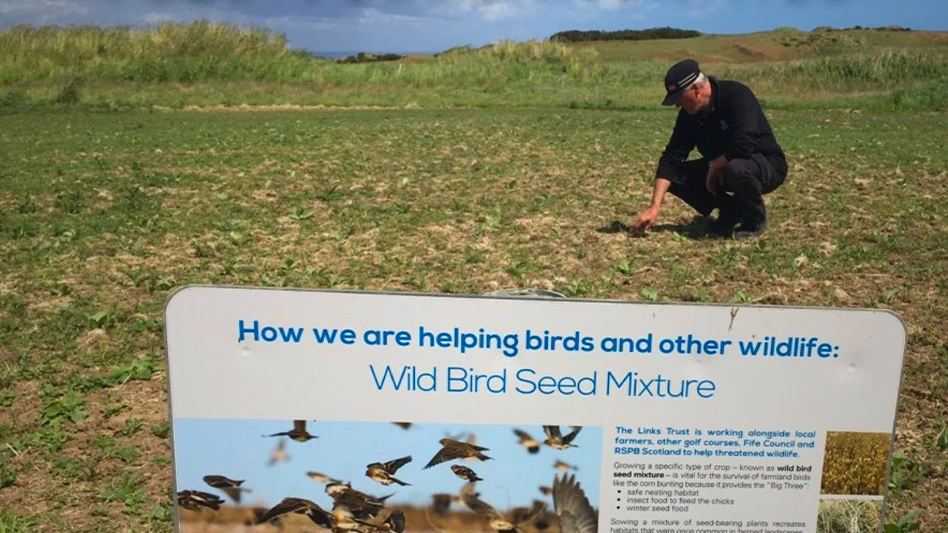
The Colorado Golf Coalition in collaboration with the National Golf Foundation and Radius Sports Group has reported the direct economic impact from golf in Colorado was $1.3 billion in 2019 while golf courses contributed approximately 33,061 acres of green infrastructure for wildlife habitat and improved quality of life.
The Colorado Golf Economic & Environmental Impact Report shows the industry generated more than an estimated $2.0 billion (direct, indirect, and induced) to the wider Colorado economy, with more than 19,400 jobs supported by the golf industry, $696.5 million in wage income, and more than $166.5 million in state and local taxes. This compares favorably to $4.8 billion and 46,113 jobs contributed by the Colorado snow sports industry in 2015.
Colorado golf’s greenspace includes turfgrass and 11,855 acres of water, wetlands, and native rough which supports wildlife and pollinator habitats, cools the urban heat island, filters surface water runoff, and contributes to health and well-being. The report’s environmental highlights show water use of less than 1 percent of the state’s annual water consumption, with approximately 97 percent of Colorado golf courses employing at least three or more water conservation measures.
“The Colorado golf industry is committed to contributing to the economic and environmental health of the state,” said Fossil Trace Golf Club head PGA professional and President of the Colorado PGA Jim Hajek. “Golf is enjoyed by approximately 487,300 golfers in Colorado – this is roughly equivalent to the entire population of Colorado Springs plus a sold-out Ball Arena.”
Economic activity is driven through golf facility operations, supplies, capital investments, charitable events, tournaments and associations, golf tourism, retail spend, and new home construction in golf communities. Consumer-spend at golf facilities was reported to exceed $639.3 million and golf tourism contributed $281.3 million to the economy, while facilities invested $92 million in capital improvements.
Of Colorado’s 236 golf facilities, 76 percent are public and of those, 46 percent are municipal. Events hosted at golf facilities raised an estimated $35.6 million for Colorado charities such as the Boys & Girls Club of Metro Denver and the Children’s Miracle Network. Community impact programs include the Junior Golf Alliance, PGA Jr. League, the First Tee, the First Green, and PGA REACH promoting golf instruction, fitness, STEM learning, inclusion, and workforce diversity.
“We're proud that Colorado golf facilities are leaders in environmental stewardship,” said Eaton Country Club superintendent and Rocky Mountain Golf Course Superintendents Association President Kyle Merritt. “In 2019 we published a guide of best management practices covering 12 key areas focused on protecting the environment, promoting optimal playing conditions, and preserving natural resources.”
The industry’s use of recycling and composting efforts contributed to a waste diversion rate of 55.6 percent in 2018, greater than reported 2018 figures for the State of Colorado and 2017 nationwide figures, which were 17.2 percent and 35.2 percent, respectively. The report indicated that Colorado golf facilities are also implementing energy reduction measures including 13 percent reporting onsite solar energy production and 22 percent using lithium-ion battery golf carts, with an additional 31 percent planning to add the carts in less than five years.
The CGC promotes collaboration and engagement with communities, civic leaders, and legislators. Colorado’s legislative leaders have recognized the importance of golf for the state via proclamation. The Colorado Golf Economic and Environmental Report is the first of its kind to fully integrate Sustainable Development Goals highlighted by economic and environmental sections to demonstrate global impacts. The SDGs, or Global Goals, are a universal call-to-action to end poverty, protect the planet, and promote peace and prosperity.
The report was produced through the CGC, including the Colorado Golf Association (CGA), Colorado Section of the PGA of America, Rocky Mountain Golf Course Superintendents Association, and Mile-High Chapter of the Club Management Association of America, in conjunction with the National Golf Foundation Consulting, Inc. and Radius Sports Group, a sports and sustainability consulting firm.
The full report is available at: www.coloradogolfimpact.org.
Latest from Golf Course Industry
- Making the grade — at or near grade
- PBI-Gordon receives local business honor
- Florida's Windsor takes environmental step
- GCSAA names Grassroots Ambassador Leadership Award winners
- Turf & Soil Diagnostics promotes Duane Otto to president
- Reel Turf Techs: Ben Herberger
- Brian Costello elected ASGCA president
- The Aquatrols Company story





